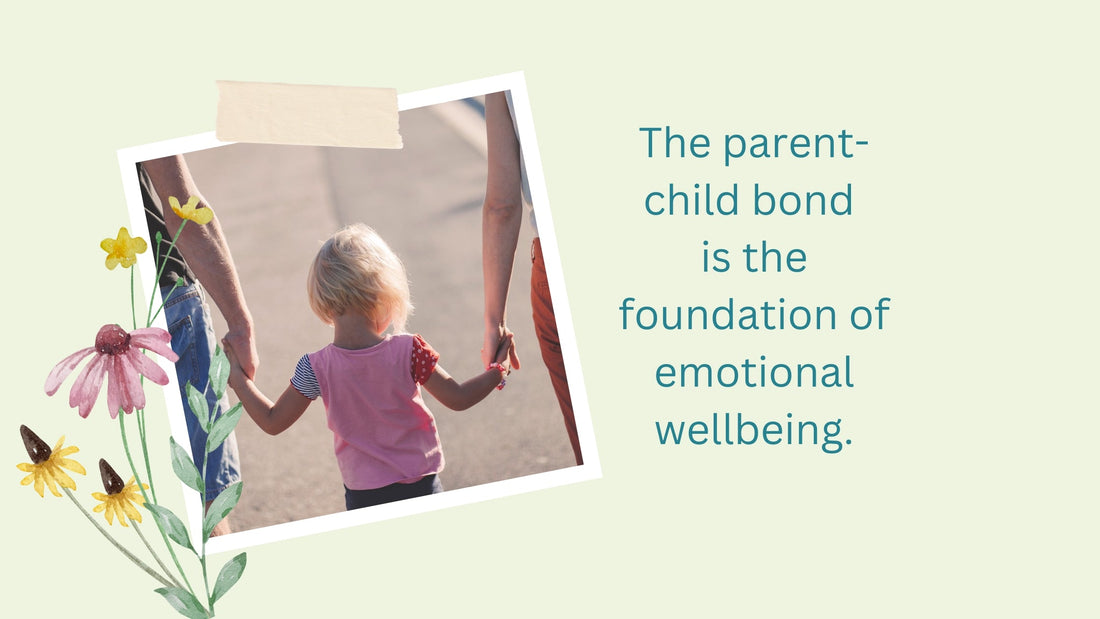
Building a Strong Parent-Child Bond for Lasting Security
Share
We all want to create a deep, meaningful connection with our children, one that fosters trust, love, and a sense of security. A strong parent-child bond is the foundation of emotional well-being and helps children develop the confidence to navigate the world around them. Whether your child is still young or entering their teenage years, there are practical ways to nurture and strengthen your relationship for lasting security.
Here are some strategies to deepen trust and connection with your child through consistent communication and quality time:
1. Engage in Active Listening
One of the most powerful ways to build trust with your child is through active listening. Show that you value their thoughts and feelings by giving them your full attention when they speak. This means putting down your phone, making eye contact, and responding thoughtfully. Children are more likely to share their inner world when they feel heard and understood.
2. Establish Consistent Routines
Children thrive on consistency. Predictable routines give them a sense of security and stability. Make time each day to engage in meaningful activities, such as family meals, bedtime routines, or weekend outings. These moments not only create bonding experiences but also offer opportunities for open communication and connection.
3. Quality Time Over Quantity
It's not about how much time you spend with your child, but the quality of the time. Carve out moments that allow for genuine interaction, whether it's reading a book together, going on a nature walk, or playing a game. The key is to be fully present during these moments, without distractions, to foster a deeper connection.
4. Show Empathy and Validation
Validate your child’s emotions, both big and small. Instead of dismissing their feelings or offering immediate solutions, acknowledge their experiences. For instance, if your child is upset about a friend issue, instead of telling them not to worry, try saying, "I can see you're feeling sad. It's okay to feel that way." This helps your child feel emotionally supported and understood, which strengthens your bond.
5. Create Opportunities for Open Dialogue
Encourage your child to talk openly about their day, feelings, and concerns by creating a safe space for communication. This could be through casual chats in the car, during bedtime, or over shared activities. Avoid interrupting or offering judgment—simply listen, and let them know their thoughts are valued.
6. Be Consistent in Your Actions and Words
Children learn to trust us when our words align with our actions. Make sure you’re consistently following through on promises and commitments, whether big or small. If you say you’ll be at their soccer game, be there. If you promise a fun activity on the weekend, make it happen. This reliability fosters a sense of safety and predictability, reinforcing your child's trust in you.
7. Teach Positive Conflict Resolution
Disagreements and misunderstandings are natural, but how you handle them can deeply impact your relationship. Model healthy conflict resolution by staying calm and respectful during disagreements. Show your child that it’s okay to have differences but also important to listen, empathize, and find a resolution together.
8. Share Special One-on-One Time
As your children grow, they may be pulled in many directions by school, extracurriculars, and friendships. But it's crucial to still carve out dedicated one-on-one time. Whether it’s a weekly movie night, a quiet walk, or just sitting and chatting about their day, these moments provide space for deeper connection and personal attention.
9. Create a Culture of Affection
Physical touch is a simple yet powerful way to show love. Hugs, kisses, and cuddles can go a long way in making your child feel safe and loved. Make affection a natural part of your daily routine, reinforcing your bond.
10. Model Healthy Emotional Expression
Show your child how to express their emotions in a healthy way. When you’re feeling upset, sad, or stressed, express those feelings calmly and constructively. This demonstrates emotional honesty and allows your child to see that it's okay to have and share emotions, leading to greater emotional openness between you both.
11. Praise and Encouragement
Recognize and celebrate your child’s achievements, big or small. Offering genuine praise helps to build their self-esteem and fosters a positive emotional connection between you. The more your child feels valued and appreciated, the stronger your bond will become.
The parent-child bond is one of the most precious relationships in life. By prioritizing quality time, consistent communication, and empathy, you can deepen your connection with your child and provide them with the security they need to thrive. The love, trust, and sense of safety you cultivate today will lay the foundation for a lifelong, healthy relationship. Remember, it’s the little moments—listening, showing up, and being present—that truly matter in building a bond that will last a lifetime.
